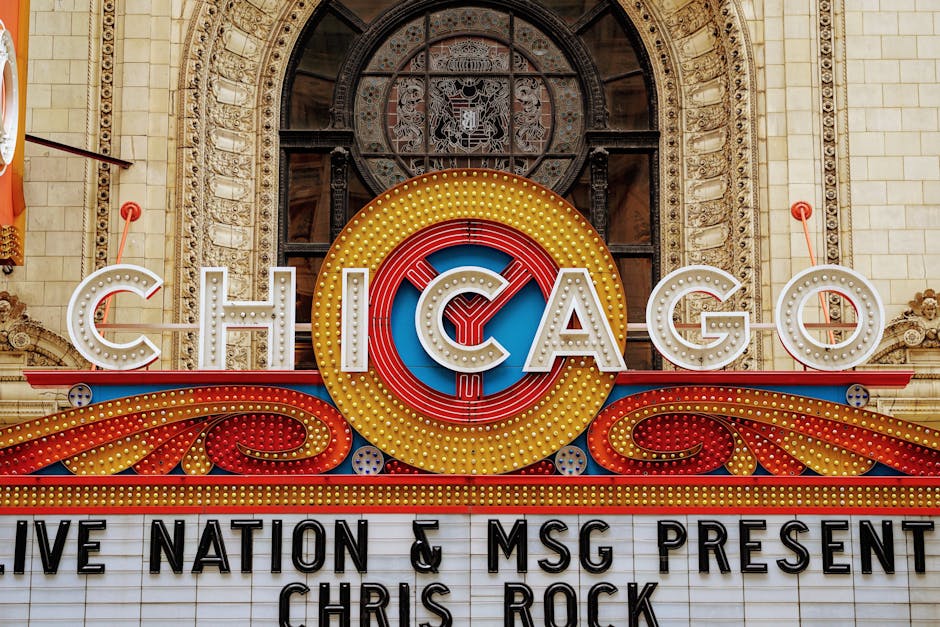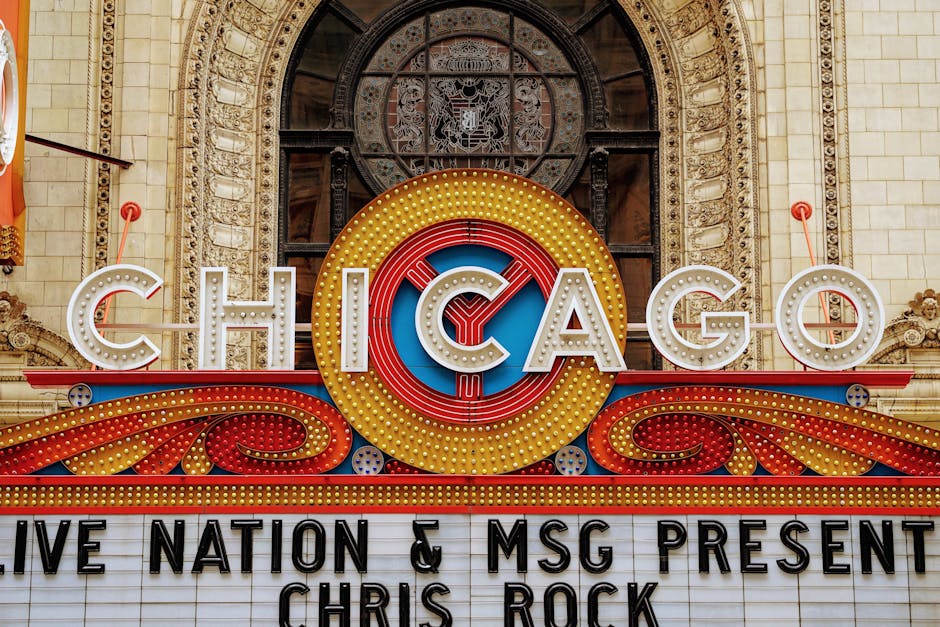Live Nation: A Deep Dive into the World’s Leading Live Entertainment Company
Live Nation: A Deep Dive into the World’s Leading Live Entertainment Company
Live Nation Entertainment, Inc. is a global entertainment company that dominates the live music industry. From massive stadium tours to intimate club shows, Live Nation’s reach extends across the globe, shaping the landscape of how we experience live music. But the company’s influence extends far beyond simply putting on concerts; it encompasses ticketing, venue management, artist management, and even sponsorship deals, creating a vertically integrated behemoth in the entertainment world. This comprehensive exploration will delve into the history, operations, impact, and future prospects of this entertainment giant.

A History of Live Nation: From Humble Beginnings to Global Domination
Live Nation’s story is one of significant growth and consolidation within a fragmented industry. While its current form is relatively recent, the company’s roots can be traced back to various smaller entities. The company’s history is marked by a series of acquisitions and mergers, enabling its evolution into the global powerhouse it is today. This strategic approach allowed Live Nation to not only increase its market share but also to develop a diverse portfolio of services within the entertainment sector.
The merging of Ticketmaster and Live Nation in 2010 was a pivotal moment. This union created a vertically integrated behemoth with control over ticketing, venue management, and artist representation. While initially met with antitrust concerns, the merger ultimately reshaped the industry, giving Live Nation unprecedented influence over every aspect of the live music experience.
Key Acquisitions and Mergers that Shaped Live Nation
- Ticketmaster (2010): This landmark merger gave Live Nation control over a significant portion of the global ticketing market, solidifying its position as an industry leader.
- House of Blues (2006): The acquisition of the House of Blues brought a collection of renowned music venues into Live Nation’s portfolio, further diversifying its reach and offerings.
- Various smaller promoter acquisitions: Over the years, Live Nation has strategically acquired numerous smaller promoters, expanding its geographical presence and artist roster.
These acquisitions have not been without controversy, sparking debate regarding the company’s monopolistic practices and their impact on artists and consumers. The level of control Live Nation exerts over the industry remains a subject of ongoing discussion and scrutiny.
Live Nation’s Diverse Business Model: Beyond the Concert
Live Nation’s business model is remarkably diversified, extending far beyond simply promoting concerts. The company’s various segments work synergistically, allowing it to maximize profits and maintain control across the entire entertainment value chain. This interconnectedness creates a powerful competitive advantage, allowing Live Nation to offer a comprehensive suite of services to artists, venues, and fans.
Key Business Segments:
- Live Nation Concerts: This segment forms the core of Live Nation’s business, encompassing the promotion and production of concerts worldwide, ranging from small club shows to massive stadium tours. This segment relies heavily on securing high-profile artists and effectively marketing their tours.
- Ticketmaster: This globally recognized ticketing platform handles millions of tickets every year, generating substantial revenue through ticketing fees and data collection. The data collected provides invaluable insights into consumer behavior, influencing future event planning and marketing strategies.
- Live Nation Venues: Owning and operating a diverse portfolio of venues, ranging from amphitheaters to arenas, ensures a steady stream of revenue and control over the entire fan experience. This control enables the company to optimize pricing, concession sales, and other revenue streams.
- Artist Nation: This segment focuses on artist management, offering a range of services to help artists manage their careers and reach a broader audience. This creates a symbiotic relationship, as Live Nation benefits from promoting its own managed artists.
The synergistic relationship between these segments is crucial to Live Nation’s success. For example, data collected from Ticketmaster helps inform decisions about which artists to sign and where to hold concerts. The integrated approach allows for efficient operations and significant economies of scale.

The Impact of Live Nation: Shaping the Music Industry
Live Nation’s influence on the music industry is undeniable. Its size and market dominance have significantly shaped how artists tour, how tickets are sold, and how fans experience live music. While this influence has brought about efficiencies and technological advancements, it has also raised concerns regarding market competition, artist compensation, and ticket pricing.
Positive Impacts:
- Improved technology and ticketing systems: Live Nation’s investment in technology has led to improved ticketing systems, making it easier for fans to purchase tickets and for artists to manage their tours.
- Global reach for artists: Live Nation’s extensive network allows artists to reach wider audiences across the globe, providing opportunities that may have been unavailable previously.
- Enhanced fan experience: Through venue management and concert production, Live Nation strives to create a superior fan experience, often investing in venue upgrades and improved safety measures.
Negative Impacts:
- Monopolistic practices: Concerns persist about Live Nation’s dominance and potential for monopolistic practices, impacting competition and potentially limiting choices for artists and fans.
- Ticket pricing and fees: The high cost of tickets, including substantial service fees, has been a recurring point of criticism, often placing live music out of reach for some fans.
- Artist compensation concerns: The power dynamic between Live Nation and artists has also been a subject of debate, with some artists expressing concerns about the terms of their contracts.
Navigating the complexities of Live Nation’s impact requires considering both the positive and negative aspects. While its contributions to the industry are significant, addressing the concerns regarding market power and pricing remains crucial.
The Future of Live Nation: Navigating Challenges and Opportunities
Live Nation faces a constantly evolving entertainment landscape. Maintaining its dominance requires adapting to changing consumer preferences, technological advancements, and the challenges of a competitive environment. The company’s future will depend on its ability to innovate and address the concerns raised by its critics.
Challenges:
- Maintaining market share: Competition from smaller promoters and the rise of new technologies are potential challenges to Live Nation’s continued dominance.
- Addressing antitrust concerns: Continuous scrutiny regarding monopolistic practices requires Live Nation to actively engage with regulators and demonstrate fair business practices.
- Adapting to changing consumer behavior: Shifting preferences in entertainment consumption require Live Nation to innovate and develop new strategies to reach younger audiences.
Opportunities:
- Expansion into new markets: Live Nation continues to seek opportunities for expansion into emerging markets and untapped territories.
- Investing in new technologies: Embracing new technologies like virtual reality and augmented reality could enhance the fan experience and create new revenue streams.
- Strengthening artist relationships: Cultivating strong relationships with artists is crucial for securing top talent and maintaining a competitive edge.
The future of Live Nation hinges on its ability to effectively navigate these challenges and seize the opportunities presented by a dynamic and evolving entertainment landscape. Its continued success will likely depend on its ability to adapt to change, address critical concerns, and consistently deliver a high-quality fan experience.








